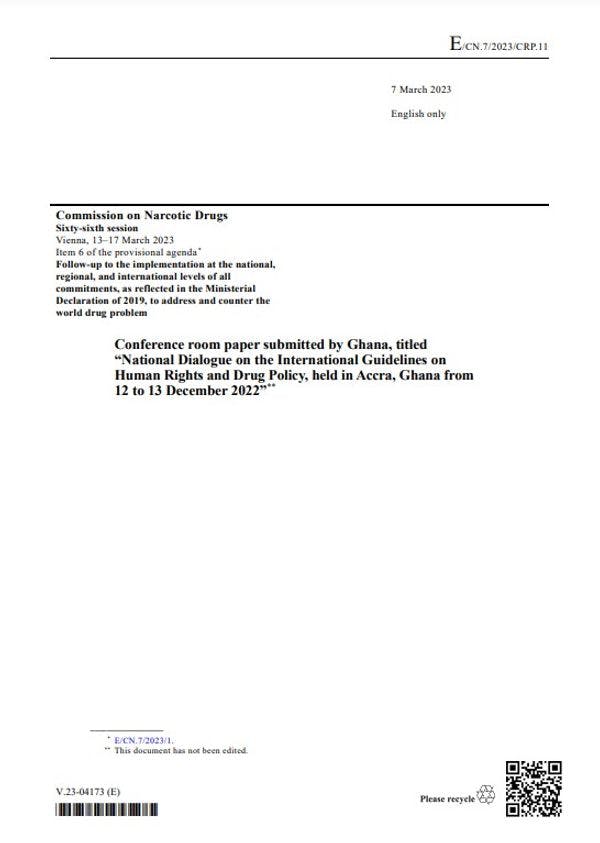UNODC
'National Dialogue on the International Guidelines on Human Rights and Drug Policy' - Ghana CND conference room paper
The conference paper concerns Item 6 of the provisional agenda for the 66th Commission on Narcotic Drugs in Vienna, 13–17 March 2023.
Follow-up to the implementation at the national, regional, and international levels of all commitments, as reflected in the Ministerial Declaration of 2019, to address and counter the world drug problem.
On the 12th and 13th December 2022, Ghana hosted the first ever National Dialogue on the International Guidelines on Human Rights and Drug Policy, with the involvement of more than 60 participants from Ghana’s government, the UN system, and national and international civil society associations.
The two-day event was co-organized by the Ministry of Foreign Affairs, the Ministry of the Interior, and the Narcotics Control Commission, in partnership with the Joint United Nations Program on HIV/AIDS, the UN Office of the High Commissioner for Human Rights, the United Nations Development Program, the International Centre on Human Rights and Drug Policy at the University of Essex, and the International Drug Policy Consortium.
After welcome addresses by the Ministry of Foreign Affairs, the session was opened by the Minister of Interior Hon. Ambrose Dery, who emphasized that in 2020 Ghana adopted the Narcotics Control Act (Act 1019) in order to treat drug use and drug dependence as health matters. In this context, the National Dialogue aimed to create space for a broad range of stakeholders to discuss drug-related issues from a human rights perspective, and to develop key recommendations for the way forward.
A series of high-level speakers noted that human rights approaches to drug policy are crucial to achieve the Sustainable Development Goals, and discussed how the Guidelines could be used to help implement and strengthen Ghana’s 2020 reforms. A series of technical panels and breakout group discussions ensued, concluding in recommendations for the way forward. Highlights included recommendations to ensure the effective depenalization of drug use and drug dependence (including retroactively); ensuring access to drug treatment and harm reduction services in the community; developing cannabis regulations that improve the lives of small-scale farmers and communities; and establishing gender-sensitive drug services.
